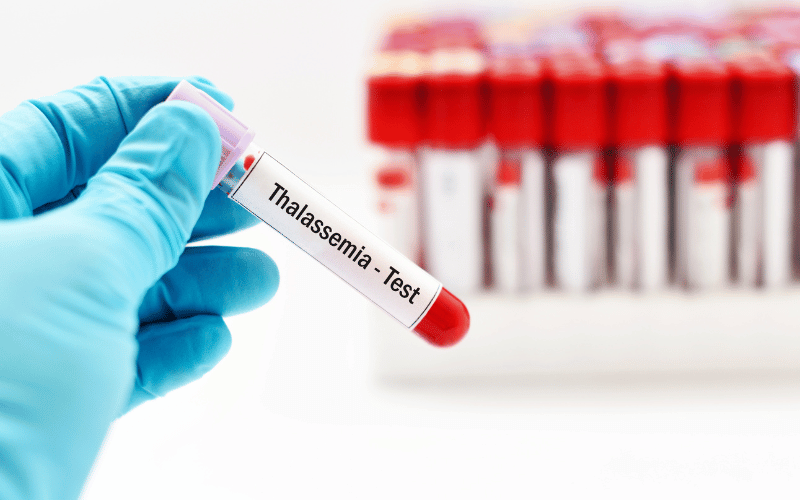FAQs about Thalassemia

1. What causes thalassemia?
Thalassemia is a genetic disorder caused by mutations in the genes responsible for producing hemoglobin, the protein in red blood cells that carries oxygen throughout the body. These mutations can result in the reduced production or abnormal structure of hemoglobin, leading to anemia and other symptoms associated with thalassemia.
2. How is thalassemia inherited?
Thalassemia is inherited in an autosomal recessive manner, meaning that both parents must carry a copy of the mutated gene for their child to develop the disorder. If both parents are carriers, there is a 25% chance their child will have thalassemia, a 50% chance the child will be a carrier like the parents, and a 25% chance the child will be unaffected and not a carrier.
3. How is thalassemia diagnosed?
Thalassemia is usually diagnosed through a series of blood tests, including a complete blood count (CBC), hemoglobin electrophoresis, and genetic testing to confirm the presence of mutated genes. These tests can help determine the type and severity of thalassemia and guide appropriate treatment plans.
4. Can thalassemia be cured?
While there is no cure for thalassemia, the symptoms can often be managed through various treatments such as blood transfusions, iron chelation therapy, and in some cases, stem cell or bone marrow transplantation. Early diagnosis and appropriate treatment can significantly improve the quality of life for individuals with thalassemia.
5. What is the life expectancy for individuals with thalassemia?
The life expectancy for individuals with thalassemia can vary depending on the type and severity of the condition, as well as the effectiveness of their treatment plan. Advances in medical care have greatly improved the life expectancy for individuals with thalassemia major, with many living into their 50s, 60s, and beyond. Individuals with milder forms of thalassemia, such as thalassemia minor, may have a near-normal life expectancy with proper management and care.
6. How can I support a loved one with thalassemia?
Supporting a loved one with thalassemia involves understanding the condition, encouraging them to adhere to their treatment plan, and providing emotional support to help them cope with the challenges of living with a chronic illness. You can also help by staying informed about the latest research and advancements in thalassemia treatment and connecting your loved one with resources and support networks.
Conclusion: Recognizing and Managing the Symptoms of Thalassemia
Thalassemia is a complex genetic disorder with a wide range of symptoms that can significantly impact an individual’s quality of life. Recognizing these symptoms and understanding their underlying causes are critical steps in ensuring that individuals with thalassemia receive appropriate care and support.
Managing the symptoms of thalassemia often involves a combination of medical interventions, lifestyle adjustments, and psychological support. By working closely with their healthcare provider and addressing each symptom as it arises, individuals with thalassemia can improve their overall well-being and minimize the impact of the condition on their daily lives.